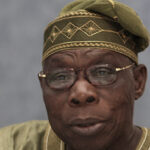“Sub-Saharan Africa faces three big inter-related challenges over the next generation. It will double its population to two billion by 2045. By then more than half of Africans will be living in cities. And this group of mostly young people will be connected with each other and the world through mobile devices”, reads the introduction to Making Africa Work.
This situation is and can be a positive force for change, but can also be a social catastrophe without economic growth and jobs. The book is a first-hand account of how to ensure growth beyond commodities and create jobs in the continent. The book showcases the challenges Africa faces ahead, but turns them into opportunities for its young population if African governments make the right decisions and act like correct leaders.
The book is infused with anecdotes from the authors during meetings with other world leaders. It also presents success stories from other continents that serve as examples of good practices, and shows the evolving relationships between Africa and Eruope and Asia.
“Special mention should also be made of the insights provided by former Nigerian President, Chief Olusegun Obasanjo. As the first Nigerian military head of state to voluntarily hand over power to a democratic government, subsequently democratically elected president of Nigeria for two terms and chairperson of the African Union between 2004 and 2006, his candid observations and fundamental optimism carry huge authority”, reads a review.
A must-read for those who want to immerse themselves and understand better Africa.
President Olusegun Obasanjo wrote the book along with other three authors. Greg Mills, director of the Brenthurst Foundation and adviser to several African presidents and to COMISAF in Afghanistan; Jeffrey Herbst, president and CEO of the Newseum and the Newseum Institute in Washington, DC.; and Dickie Davis, an Associate of the Johannesburg-based Brenthurst Foundation and a retired Major General in the British Army.
